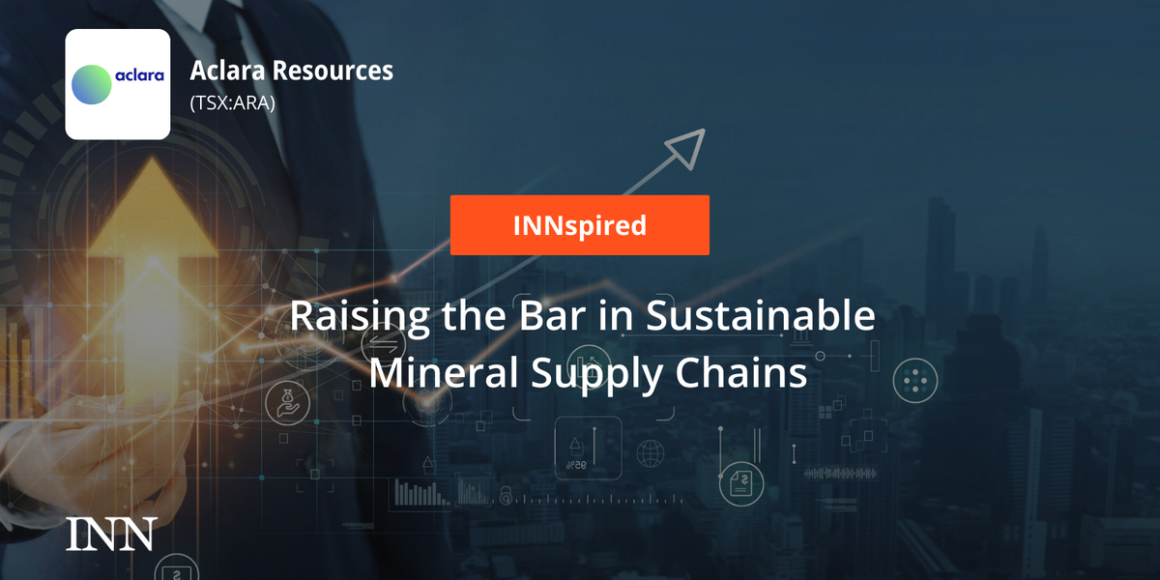At present, the world faces multiple supply shortfalls, including but not limited to lithium, rare earths and copper. Achieving a meaningful transition means sustainability must be integrated not just in production, but throughout the supply chain.
Given their capacity to incorporate sustainable practices throughout their value chain processes and protocols, mining companies with vertical integration strategies can offer a unique value proposition for investors.
Vertically integrated value chains have existed in the resource sector for decades, driving many mergers and acquisitions while serving as the key value proposition for mining and resource companies of all sizes.
For one, vertical integration provides resilience against market volatility, insulating against both downstream and upstream impacts through greater control and lower production costs. This business model also allows a mining company to take advantage of improved margins in adjacent sectors of the value chain, and boost upstream channels to market and generate incremental demand for commodities.
The transition to cleaner forms of energy and electric vehicles will not happen overnight. It’s an expensive and complex long-term undertaking. Moreover, it requires a massive amount of raw materials — and ensuring a company’s entire supply chain is traceable and sustainable can be challenging.
A vertical integration strategy can provide a pathway for a company to ensure a sustainable and responsible supply chain — from extraction and processing to sale and distribution, and potentially even product development.
As an investor, one must examine a mining company’s entire supply chain to verify claims of vertical integration and sustainability, including extraction, processing and refinement.
Given how long vertical integration strategies have existed in mining and resources, it should come as little surprise that many companies embrace them, including some of the largest producers in the world. Below, you’ll find a few examples we believe could make for particularly valuable investment targets.
A development-stage company focused on ion-adsorption-clay-hosted heavy rare earth minerals, Aclara leverages its patented Circular Mineral Harvesting process that produces no solid or liquid waste, requires no explosives, milling or crushing, and recirculates up to 95 percent of used water. The company has committed to fully revegetating and revitalizing the extraction zones at its projects in Chile and Brazil.
Beyond its Circular Mineral Harvesting process, Aclara plans to become a vertically integrated rare earth production company, from mine to metals and alloys, while consistently prioritizing and implementing sustainable practices throughout the value chain. In collaboration with the Saskatchewan Research Council and Hatch, the company is developing a rare earth separation facility in the US using a solvent extraction process. In addition, Aclara’s recently announced joint venture with CAP S.A. aims to offer a geopolitically independent alternative supply of rare earths for the permanent magnets market. In further demonstration of its resolve toward sustainability, Aclara recently joined the United Nations Global Compact, the world’s largest corporate sustainability initiative. With over 24,000 participating organizations across 160 companies, the Global Compact defines a ten-principle framework on labor, human rights, anti-corruption and environmental practices.
This puts the company in an excellent position to expand downstream, leveraging its pre-existing expertise to help establish a stable North American battery supply chain.
An Australian REE company focused on sustainable development, Arafura maintains full ownership of the Nolans Project. Located 135 kilometers north of Alice Springs, the project is rich in both neodymium and praseodymium. Arafura has secured government funding to support the project, which it plans to develop into a vertically integrated operation with on-site processing facilities.
Once completed, the mine is expected to have a 38-year life with a capacity of 4,400 MT of annual neodymium-praseodymium concentrate production.
A diversified development-stage mining company based in North America, Fortune Minerals owns the NICO cobalt-gold-bismuth-copper project in the Northwest Territories, Canada. The company is currently working to advance the vertically integrated project, producing bulk concentrate through a mine and onsite mill and then shipping the concentrate to a company-owned plant in Southern Canada for refinement. Fortune Minerals is also actively dedicated to sustainability, Indigenous relations and community outreach; the company currently maintains a working relationship with the Tlicho First Nation on the project.
Founded in 2011, Elcora is a vertically integrated battery materials company structured to address the entire battery value chain. The company is particularly noteworthy for its proprietary refinement process to cost-effectively purify battery metals and minerals. Through this process, Elcora is able to produce high-quality graphene.
Elcora currently owns and operates the Sakura graphite mine in Sri Lanka and the Atlas Lion vanadium deposit in Morocco. The company also operates a processing facility near the Ragedara Mine in Sri Lanka.
Vertical integration is nothing new for the mining sector. But with sustainable and cost-effective production now front-of-mind for more stakeholders than ever, vertical integration strategies have never been more relevant. Companies that can successfully execute a vertical integration initiative gain a significant competitive advantage, greatly improving their potential investment value as a result.
This INNSpired article was written according to INN editorial standards to educate investors.
INN does not provide investment advice and the information on this profile should not be considered a recommendation to buy or sell any security. INN does not endorse or recommend the business, products, services or securities of any company profiled.


Leave a Reply